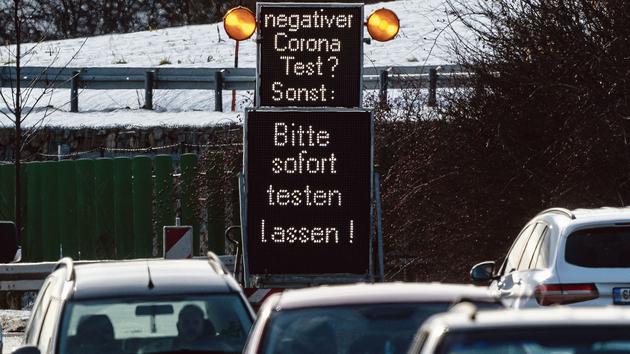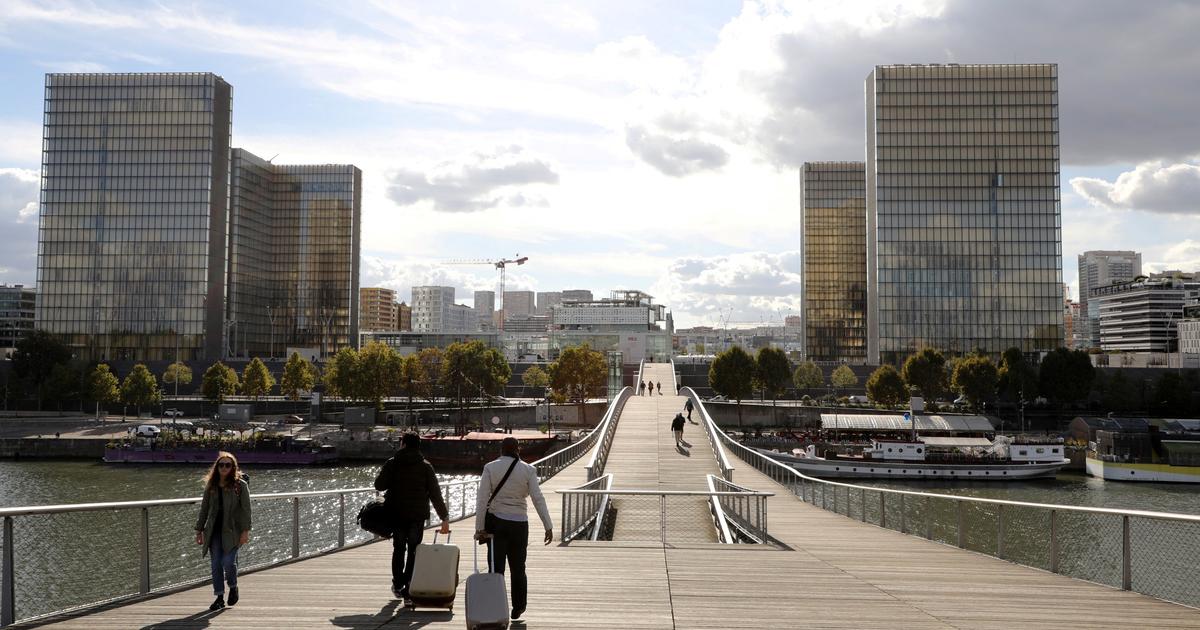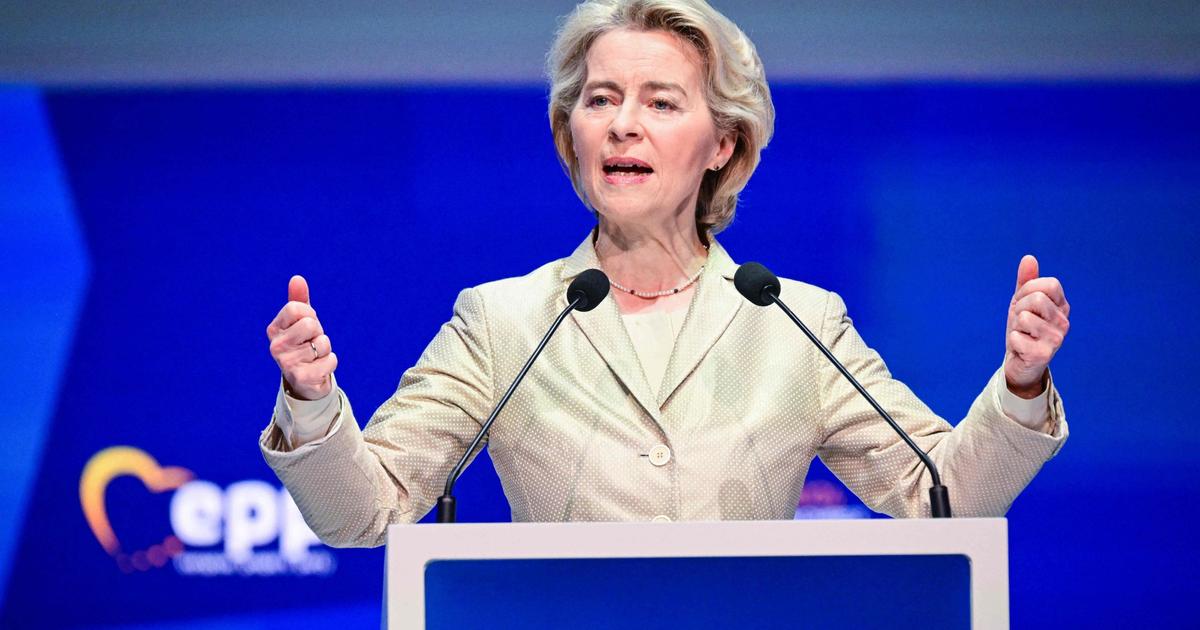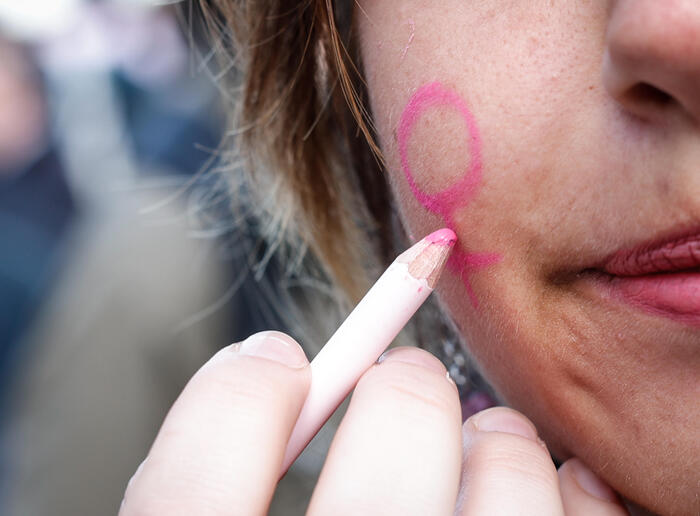It has become a ritual.
Every month, European leaders take part in a videoconference to discuss the Covid pandemic and ... try to coordinate.
The most recent, the ninth of its kind, took place Thursday evening.
On the menu for this exceptionally long meeting, vaccines, the vaccination certificate pushed by certain Member States and freshly welcomed by many others, the question of third countries, the internal and external borders of the EU ... But also the experiences that Twenty-Seven will draw on their counterparts.
"
But how did you manage to bring the situation to a manageable level?
», Asked Angela Merkel, addressing the Irish Prime Minister.
Germany, spared in the first wave, faces a worrying situation and crossed the 50,000 dead mark on Friday.
“
As soon as we saw that it was going up, we closed hard.
And when we saw that we had a tray, we reopened cautiously,
”replied Micheal Martin in substance.
With the notorious exception of the Hungarian Viktor Orban, who has just ordered the trifle of 2 million Russian vaccines, all the leaders spoke.
"
If the absence of instructions allows us to gain a few days in the delivery of AstraZeneca vaccines, then I agree that there is no instructions
", launched the Belgian Prime Minister, Alexander De Croo.
We cannot say that Europeans do not talk to each other.
Elasticity of rules
Coordination on the measures imposed on populations is a whole different story.
Between curfews with very fluctuating schedules from one country to another - 6 p.m. in France, 10 p.m. and midnight in Belgium, 10 p.m. in Latvia but only on weekends -, variable geometry reconfigurations, categories of masks to wear - FFP2 now mandatory in Germany and Austria - there is something to get lost in.
For those who travel within the Schengen area, the elasticity of the rules on crossing internal borders becomes a puzzle.
Only three EU countries have no restrictions on European travelers: Bulgaria, Luxembourg and Portugal.
For the others, it is necessary to compose with what one could call menus à la carte.
To date, around fifteen Member States request a certificate or a negative entry result obtained between… 24 and 72 hours before arrival in the country.
About twenty have set up a quarantine, the duration of which varies between 7 and 14 days depending on the case.
A dozen ask travelers to fill out a form before entering.
Some Member States, like Belgium, where the virus is under control at this stage, tick all the boxes.
In addition, there are unexpected rule changes.
The Élysée announced on Thursday that a PCR test of less than 72 hours would be compulsory from Sunday for all travelers coming from the EU, but not for those carrying out so-called
“essential”
missions
, for border crossers or travelers arriving by ... train and road.
Read also:
For Professor Antoine Flahault, the differences in the epidemic situation justify the control of movements in Europe
Of course, Brussels is not in a position to impose rules in these areas which fall under the sovereignty of the Member States.
The health situations also vary from one country to another, justifying the differences.
However, better harmonization would have the advantage of legitimizing these measures a little more in public opinion.
“
We will never get to a Le Nôtre garden.
It's absolutely impossible,
”warns a European diplomat.
“
The French still have an immense nostalgia that we are not in 1805 with prefects everywhere who organize the Napoleonic empire according to uniform bases
, ironically another.
They would like everything to be the same between Bulgaria and Poland, between Burgundy and the Loire Valley.
Everything cannot be the same everywhere.
And it doesn't matter.
What would be very serious would be for measures to create problems like those we saw in March when trucks, doctors and border workers could no longer cross borders
. ”
Read also:
Restrictions for travelers arriving in France: septaine, PCR test ... All you need to know
Over the weeks, as new, more contagious strains of the virus have started to spread in Europe, a convergence seems to have taken shape around the internal borders of the EU. This is to make them much more difficult for citizens to cross, while maintaining the proper functioning of the internal market thanks to the mutual recognition of antigen tests and PCR, on which the Member States have finally managed to agree. . The Twenty-Seven admitted in their conclusions on Thursday evening that "
measures restricting non-essential travel within the EU may be needed to contain the spread of the virus
." Some see it as the umpteenth return of the internal Schengen borders. Others believe that this is just another way of limiting the opportunities for contamination in the face of variants that are known to be very contagious. In any case, these decisions sound like a singular and worrying questioning of the free movement of European citizens.















